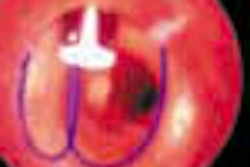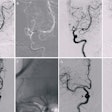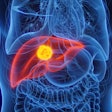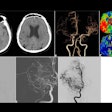Two new weapons have emerged in the fight against head and neck cancer. Israeli investigators have released early data indicating that the experimental drug Multikine has the ability to reduce tumors. Multikine is a combination of interleukin-2 and other cytokines that regulate immunity.
Dr. Raphael Feinmesser and his colleagues at the Rabin Medical Center in Tel Aviv injected a dozen head and neck cancer patients with Multikine. Of the 12 patients, two had a 100% tumor reduction based on the results of a clinical examination. Partial reductions of 50% or greater were reported in four patients, while the remaining tumors were reduced in size by less than 50%.
Histopathology had shown lymphocyte infiltration in the tumors of five patients, the group said. There were no reports of drug-related toxicity, according to Multikine manufacturer Cel-Sci of Vienna, VA.
In other news, the gene-deleted adenovirus Onyx-015, when paired with chemotherapy, also has the potential to shrink head and neck tumors, as well as prevent them from recurring.
Researchers from several international institutions, including the M.D. Anderson Cancer Center in Houston, treated 30 head and neck cancer patients with Onyx-015 and standard chemotherapy. Onyx-015 is designed to exploit deficiencies in the tumor suppressor p53, and initiate programmed death in cancer cells.
Of the 30 patients, 83% exhibited some kind of tumor shrinkage, while 63% of the 30 saw their tumors shrink by more than half. During the five-month follow-up, those 19 patients did now show any tumor recurrence, according to a paper published in the August issue of Nature Medicine.
The study expands on previous Onyx-015 tests, including work done by researchers at the Henry Ford Health System in Detroit and the Cancer Research Campaign in Glasgow, Scotland. The Detroit group used a pair of isogenic cell lines to demonstrate that Onyx-015 viral therapy can be successfully combined with radiation to improve tumor control (Cancer Research, March 1, 2000, Vol.60:5, pp.1193-1196).
In a phase I Scottish study, 22 patients with recurrent head and neck cancer were given between 107 and 1011 plaque-forming units of the adenovirus. Of the 22 patients, 21 showed an increase in neutralizing antibody to the adenovirus. The cancer had stabilized in eight patients after treatment for eight weeks, the group wrote (Clinical Cancer Research, March 2000, Vol.6:3, pp.798-806).
By Shalmali Pal
AuntMinnie.com staff writer
August 11, 2000
Reuters Health contributed to this story.
Related Reading
Gene therapy: New frontier for interventional radiology? July 5, 2000
Let AuntMinnie.com know what you think about this story.
Copyright © 2000 AuntMinnie.com

















